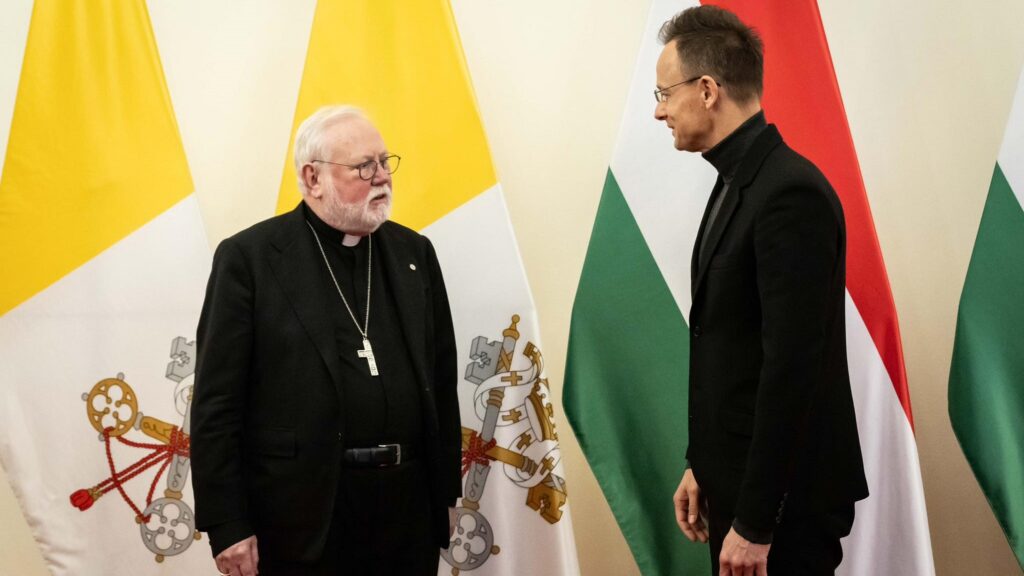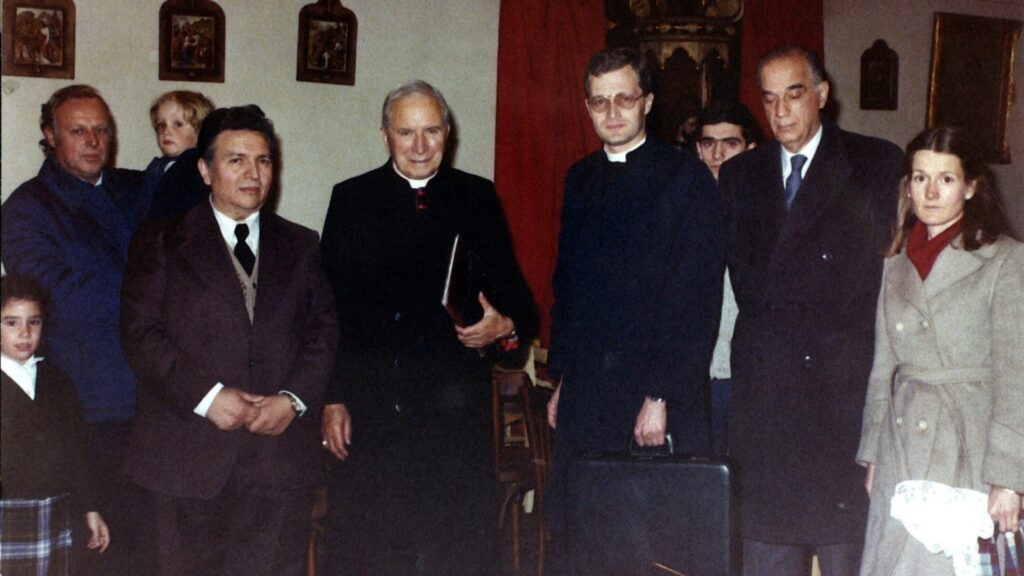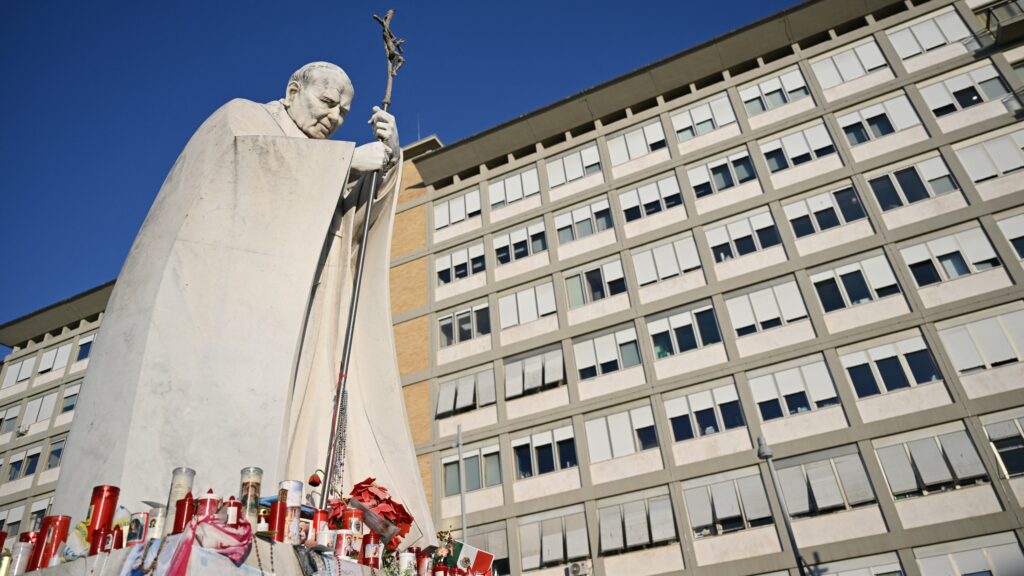Lately, the Catholic media has been filled with rumours about the rapidly deteriorating health of Pope Francis, with many foreseeing his eventual resignation in the near future. These rumours were further fuelled by the remarks of an unnamed Vatican insider, who told a Newsmax correspondent that the Pope ‘is not going to be around for long’. As usual, the Vatican officially denied the allegations, but we have seen this type of communication before, so naturally, no one took it at face value. Instead, journalists and experts have already started speculating on who could follow Francis on St. Peter’s throne.
One of the two most likely frontrunners would be Cardinal Luis Antonio Tagle from the Philippines, who – if elected – would become the first Asian pope (if we exclude the Middle East, since many leaders of the early Church were born in the Byzantine Empire). Besides being non-European, Cardinal Tagle also shares Pope Francis’ liberal political views, so his election would not result in any major changes in the current direction of the Church, unlike should the other top contender win the race: Cardinal Péter Erdő.
The possibility of Cardinal Erdő becoming the first Hungarian pope is nothing new among those familiar with the inner politics of the Vatican. The archbishop’s name is well known both in Hungary and Rome as he has been given many important offices within the Church since his elevation to the Sacred College of Cardinals by Pope John Paul II in 2003. In fact, he was considered a candidate for papacy during the last two conclaves as well. He is also known for being a man of science. Erdő speaks over half a dozen languages, holds two doctorate degrees in theology and canon law, and he has been a member of the Hungarian Academy of Sciences since 2007. What’s more, Cardinal Erdő belongs to the traditionalist school within the Vatican–as opposed to the great reformer, Pope Francis–which could mean significant changes for the Church going forward.
The possibility of Cardinal Erdő becoming the first Hungarian pope is nothing new among those familiar with the inner politics of the Vatican
It is no secret that Pope Francis brought radical changes into the Church. His openly liberal reforms had quite an appeal in the eyes of young people worldwide, and his positive messages about open borders, LGBTQ-rights and multicultural diversity quickly made him a champion of the Western (and otherwise increasingly anti-religious) left. By those on the cultural right, of course, Francis was often criticized as being too political and for neglecting the true purpose of the Church–conveying Christ’s message without any compromise–to score woke, virtue signalling points. Regardless of what is closer to the truth about Francis, Cardinal Erdő–once elected pope–would be something very different. Or, perhaps, “different” is not the best word, since his papacy would likely constitute a return to the more traditional ways of the Church. Yet, he’s also the man who is widely respected by members of various schools of thought within the Vatican, since–while having strong opinions about what direction the Church should take–he categorically rejects participating in divisive identity politics on either side and instead aims to become a bridge between the opposing parties.
For instance, Erdő stressed in interviews before that the church should not get close to any political groups or directions; its role and purpose should be higher than our earthly debates. He rejects the stoking of flames of conflicts between cultures (such as Christianity and Islam) by deliberately presenting them as antagonistic categories; he believes that identity politics itself is what hinders peace. Christianity is not European or white, the Cardinal holds, the same way as it is not imperialistic or oppressive. It is the love of Christ that belongs to all who accept it, Erdő professes. What’s more, Erdő not only acts as a bridge between cultures, but he has also proved himself to be a bridge between the East and the West–Orthodoxy and Catholicism–which is an increasingly important task with the war in Ukraine still underway.
Yet, in the great European cultural divide, Cardinal Erdő seems to lean slightly to the right
et, in the great European cultural divide–where morally motivated opinions are still valid and important–Cardinal Erdő seems to lean slightly to the right. For instance, during and after the European migration crisis of 2015, he criticized some Western European countries’ sudden adoption of the German Willkommenskultur, saying that encouraging unlimited mass immigration is like partaking in human trafficking. He and Prime Minister Viktor Orbán share a particularly good relationship, and the government even held a small ceremony to mark his 70th birthday last month. He is even more conservative in Church matters–albeit such terms as “conservative” or “liberal” are placed on an entirely different scale in Church politics–, sometimes described as a Ratzingerite (referring to the views of Pope Benedict XVI). He prefers keeping the old rites in the liturgy and has defended the Latin Mass in the past.
All in all, if one thing is certain it is that should Cardinal Erdő be indeed elected, then the Vatican will return to the direction set by John Paul II (with his strong morals in politics) and Benedict XVI (with his uncompromising conservatism in terms of Catholic teachings). Yet, he can also be expected to show a sensitive approach to the current state of the cultural divide across the West, and sow seeds of unity with every speech instead of deepening rifts, while also trying to mediate between the two broken halves of Christendom, Russia and Europe.
Now, what is uncertain is everything else. Truth is, these are mere speculations, and the statistical precedents of previous papal elections shows us that they rarely turn out to be true, since you can not really poll the 116 cardinal electors about their voting intentions, as you would in case of a secular constituency. Church politics work in mysterious ways, one could say. Nevertheless, the twentieth century also proved that hard times tend to call for Central European popes, so let us hope together that if we are in such times again, Cardinal Erdő will be there to guide the Church through it in the name of unity, instead of further divisions.








